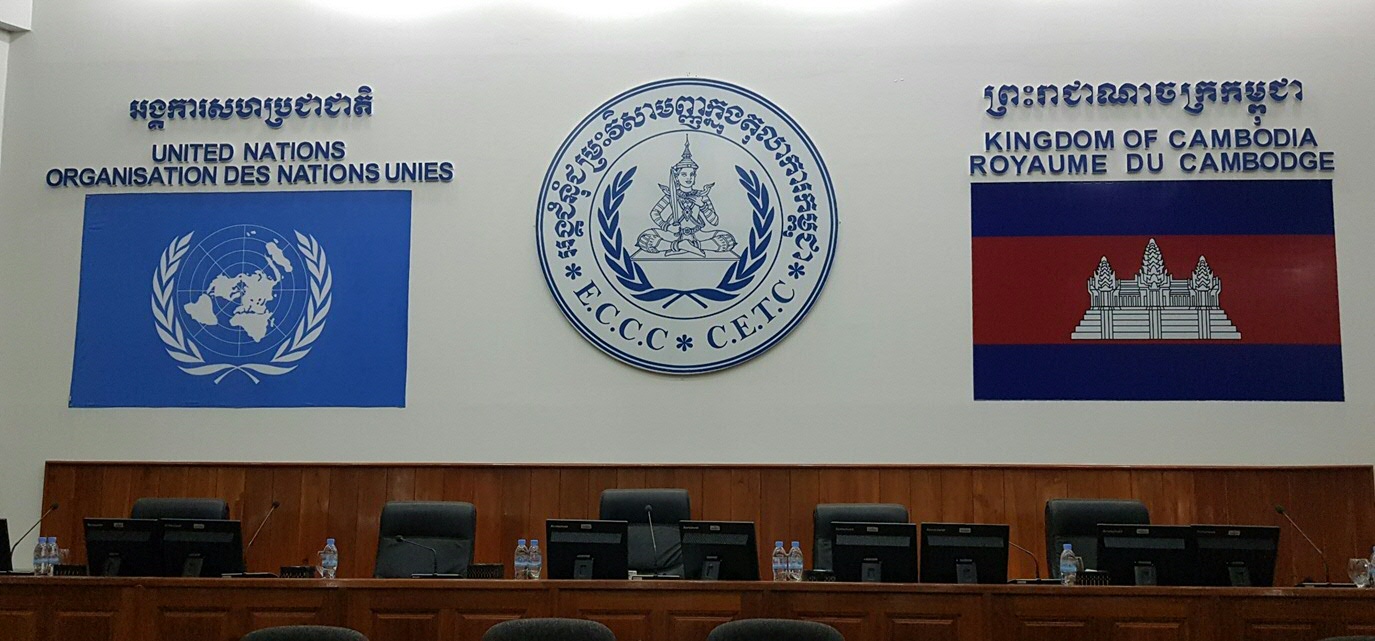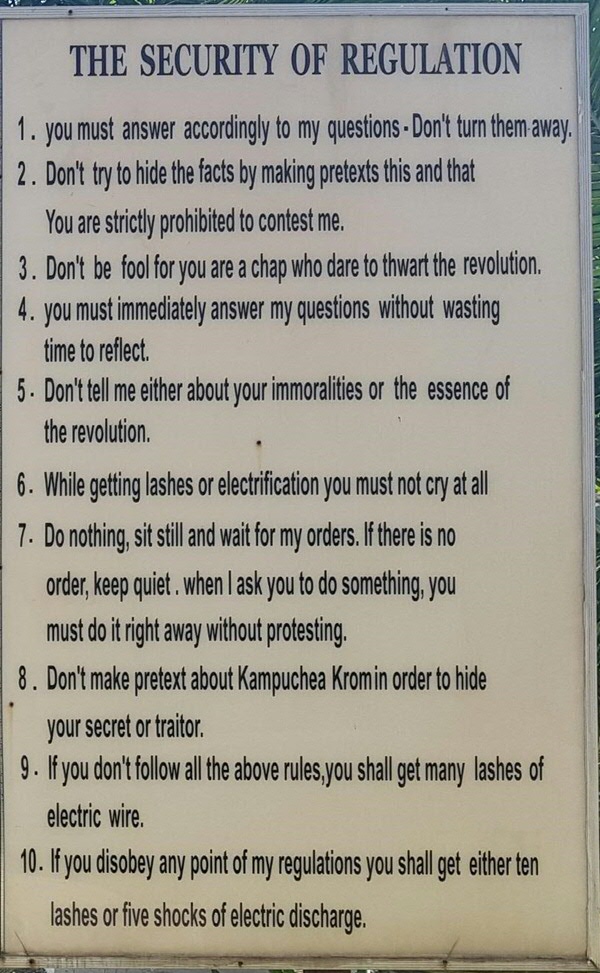14th Conference International Association of Genocide Scholars: A UG-panel in Cambodia

Auteur: Suzanne Schot, LLM
The 14th Biannual Conference of the International Association of Genocide Scholars took place from 14 – 19 July in Phnom Penh, Cambodia. From the Department of Criminal Law and Criminology, Prof. dr. Caroline Fournet, Prof. dr. Alette Smeulers, Adina-Loredana Nistor (PhD candidate) and Suzanne Schot (PhD candidate) presented their research in their jointly organized panel entitled “Perpetrators of International Crimes on Trial”.
The first paper was presented by Prof. dr. Caroline Fournet, who addressed the evidentiary value of corpses of the victims of mass violence in the case law of the International Criminal Court. This paper is forthcoming in the Journal of Forensic and Legal Medicine.
The second paper was presented by Suzanne Schot, who focused on the assessment of the accused testimonies in international criminal trials. Emphasis was placed on various rules of procedure and evidence of the International Criminal Court, International Tribunal for the former Yugoslavia and Dutch courts, as well as on the factors deemed important by judges when assessing the credibility of the testimonies of those accused.
The third presentation was given by Adina-Loredana Nistor, who discussed the intersection of cultural constructs in international criminal trials. Focusing on the Ongwen trial that is currently ongoing at the International Criminal Court, she discussed how different parties to the trial address evidentiary submissions concerning spiritual beliefs in relation to the crimes committed in Northern Uganda and to the accused’s criminal responsibility.
The fourth, and last, paper was presented by Prof. dr. Alette Smeulers, who specifically addressed the role of trials as a trigger to study perpetrators, hereby offering a historical overview of perpetrator studies. In addition, the paper considered how data resulting from (international) criminal courts and tribunals has influenced qualitative and quantitative approaches to study perpetrators on trial.
Named after Rithy Panh’s acclaimed ‘The Missing Picture’ (2013), the conference was held in Phnom Penh, 40 years exactly after the fall of the Khmer Rouge regime. The crimes perpetrated by the Khmer Rouge were thus very much the focal point of the Conference. The Opening Address was given by genocide survivor and musician Arn Chorn-Pond, the founder of Cambodia Living Arts, who aims to restore Cambodia’s artistic heritage after so many artists lost their lives during the Khmer Rouge regime.[1] Film director Rithy Panh also gave a keynote during the conference in which he addressed how pictures can assist in storytelling, memory and grieving.[2]
Accordingly, several documentaries and films were screened and thereafter discussed: such was the case of the ‘The Missing Picture’ which uses clay figures, archival footage and narration to recreate atrocities committed by the Khmer Rouge, and ‘Daze of Justice’ (Michael Siv), which retraces the travel of survivors of the Khmer Rouge regime back to Cambodia attend trials before the Extraordinary Chambers in the Courts of Cambodia (ECCC), set up in 2001 to try the most responsible Khmer Rouge leaders.[3]

We actually took the opportunity of being in Phnom Penh to visit the ECCC and were very lucky to be able to meet with some of the staff and visit the premises, including the courtroom. We also visited the Tuol Sleng Genocide Museum: Tuol Sleng, also known as Security Prison S-21, was a former secondary school where the Khmer Rouge relentlessly detained, tortured and murdered anyone they felt was an ‘enemy’. We also went to the Killing Fields of Choeung Ek, a former Chinese cemetery just outside Phnom Penh, where the Khmer Rouge executed those who hadn’t died in S-21. Their victims were men, women and children.

These visits were informative, insightful as well as challenging and thought-provoking: the extent and sheer horror of the crimes perpetrated only 40 years ago, the victims’ demands for justice and the survivors’ determination not to let the atrocities be forgotten highlight once more, if need be, the importance of international criminal law and justice. If the conference as a whole, and our panel in particular, emphasized that much remains to be done in this area, it also showed the vital importance of continuing inter-disciplinary research on genocide and gross human rights violations.
[1] See https://www.cambodianlivingarts.org/ <last accessed 30 July 2019>
[2] Rithy Panh is also known for other films focusing on Cambodia e.g. Rice People (1994), The Land of Wandering Souls (2000), S-21: The Khmer Rouge Killing Machine (2003), and Duch, Master of the Forges of Hell (2011).
[3] See https://www.eccc.gov.kh/en <last accessed 30 July 2019>

